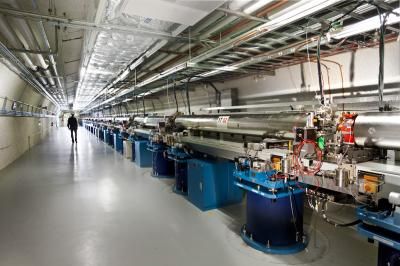NYU receives $7.2 million NSF grant for center to develop new materials
Advertisement
New York University has received a $7.2 million, six-year grant from the National Science Foundation to create a Materials Research Science and Engineering Center (MRSEC), where NYU scientists will develop new materials through the exploration and manipulation of molecular particles. This grant was awarded based on a proposal spearheaded by faculty in the recently created Molecular Design Institute in NYU chemistry and Center for Soft matter Research in NYU Physics. NYU's center is one of 31 MRSECs in the country. These NSF-backed centers employ interdisciplinary and multidisciplinary materials research to address fundamental problems in science and engineering.
The NYU MRSEC unites NYU's departments of chemistry and physics, its Courant Institute of Mathematical Sciences, its College of Dentistry, and the Polytechnic Institute of NYU as well as Princeton University. Its primary focus will be colloidal architecture - how microscopic particles are arranged and how they may be controlled to develop new materials to create better classes of consumer products.
In addition, NYU's MRSEC will operate an Industrial Partners Program, in which businesses and corporations will become center members to collaborate with each other and NYU faculty in non-competitive research. Members will also work with NYU faculty in proprietary research.
The NYU MRSEC revolves around an Interdisciplinary Research Group (IRG) that combines theory, computation, structural characterization, and property evaluation, which are essential to innovation in materials research. Specifically, its work in colloidal architecture merges investigators with expertise in experimental and theoretical condensed matter physics, colloid science, synthetic chemistry, polymer chemistry, solid-state chemistry, and biomaterials. These researchers develop principles for the creation of materials by manipulating particle shape, size, and interactions, with the aim of obtaining and improving specific structures and their functions.
Most read news
Topics
Organizations
Other news from the department science

Get the chemical industry in your inbox
By submitting this form you agree that LUMITOS AG will send you the newsletter(s) selected above by email. Your data will not be passed on to third parties. Your data will be stored and processed in accordance with our data protection regulations. LUMITOS may contact you by email for the purpose of advertising or market and opinion surveys. You can revoke your consent at any time without giving reasons to LUMITOS AG, Ernst-Augustin-Str. 2, 12489 Berlin, Germany or by e-mail at revoke@lumitos.com with effect for the future. In addition, each email contains a link to unsubscribe from the corresponding newsletter.































































